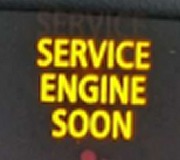How does the fan just "get loose"? Simple. It's called "wear". Bearings wear all the time and whatever is supported by them becomes loose. It can wobble, make noise, and / or cause vibrations. Those things can be intermittent too. By speeding up the engine you may have caused something to shift for a while to take up some of the free play so the noise might stop. That obviously is not a permanent fix. If it was, all mechanics would have to learn at school was how to rev up a customer's engine.
Also, we run into cars all the time that stop making noises and the owners think the problem went away some how, but they are blissfully unaware of the more serious clues that something catastrophic is about to happen, so they go on their merry way until they end up sitting on the side of the highway, then they look for someone else to blame. Usually it's the mechanic who touched the car months ago, even though what he worked on had nothing to do with the current breakdown.
In the case of your fan, did someone actually look at it and feel it, or did they just guess based on your description of the noise? No professional would base his diagnosis on anything other than a visual inspection. He might make an educated guess first but that would be followed by a careful inspection to verify his guess before he tells you what is needed. There's actually two parts involving the fan that can become loose. The water pump has the higher failure rate. It is driven by a belt and is supported by bearings that commonly fail. That allows everything attached to it to wobble. When it gets bad enough the shaft will wobble far enough away from the rubber seal to allow coolant to leak out. If it's a slow leak at first you can add coolant as necessary, but eventually it will leak out as fast as you can pour it in.
Your engine uses a fan clutch between the fan and water pump. Those reduce drag on the engine when the fan isn't needed, but they have bearings in them too. Sometimes the broken internal parts cause the clutch to lock up making it spin at full speed all the time. That's when the noise would go away, but you would notice more wind speed or air flow at low engine speeds. If that's all that happens, you will have slightly reduced fuel mileage. If either bearing gets bad enough, it can allow the fan blade to hit the radiator resulting in a major leak, a much higher repair bill, and time spent waiting for a tow truck on the side of the road.
There are other potential causes for the noise you described. I'd have a mechanic look at it for other clues or signs pointing to the cause. He will tell you if it is something that could turn serious or if it is a minor problem.
Monday, September 30th, 2013 AT 11:37 AM



